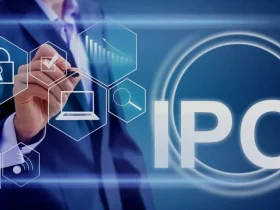The healthcare landscape transforms by integrating human connection and medical expertise, fundamentally shaping how providers interact with their patients. This deep dive explores the profound influence of clear, empathetic, and precise communication on healthcare delivery and patient well-being.
Building trust through active listening
Healthcare providers establish stronger connections with patients by demonstrating genuine interest in their concerns. Active listening creates a foundation of trust, enabling patients to share detailed symptoms, medical history, and personal challenges affecting their health journey. This openness leads to more accurate diagnoses and personalized treatment plans that address medical needs and individual circumstances.
Breaking down complex medical information
Medical professionals face the challenge of translating complex terminology into understandable language for patients. When providers break down intricate medical concepts into simple terms, patients gain clarity about their conditions and treatment options. This understanding empowers them to participate actively in healthcare decisions and consistently adhere to prescribed treatments.
Impact on medication adherence

When healthcare providers clearly explain medication purposes, dosages, and potential side effects, patients better understand their treatment regimens. Effective communication in medication discussions reduces confusion, increases compliance, and prevents adverse reactions from incorrect usage. Patients who comprehend their medication instructions demonstrate higher adherence rates and improved health outcomes.
Reducing medical errors through clear communication
Miscommunication among healthcare team members contributes significantly to medical errors. Through effective communication, providers coordinate care seamlessly, ensuring the accurate transfer of patient information during shift changes and across departments. This information-sharing precision prevents medication errors, improves procedure accuracy, and enhances patient safety.
Emotional support and healing
The power of effective communication extends beyond medical information exchange to emotional support. Healthcare providers who communicate with empathy help patients manage anxiety, stress, and fears associated with their conditions. This emotional connection promotes faster recovery, reduces pain perception, and improves overall patient satisfaction with their care experience.
Managing expectations
Clear communication about treatment plans, recovery timelines, and potential challenges helps patients develop realistic expectations. Healthcare providers who excel in effective communication guide patients through their recovery journey with transparency and support. This clarity reduces anxiety, improves patient cooperation, and improves adherence to post-treatment care instructions.
Emergency management
During medical emergencies, clear and concise communication becomes crucial for patient survival. Healthcare teams who communicate efficiently during critical situations coordinate better, make faster decisions, and provide more effective emergency care. This streamlined communication in high-stress scenarios directly impacts patient survival rates and recovery outcomes.
Family involvement
Including family members in healthcare, communications create more muscular support systems for patients. When providers effectively communicate with patients and their families, they create a collaborative care environment. This inclusive approach ensures better home care implementation and stronger adherence to treatment plans.
Documentation and continuity of care
Accurate and detailed documentation of patient interactions, treatments, and progress relies on Effective Communication between healthcare team members. Clear written communication ensures seamless continuity of care, especially during provider transitions or multi-facility treatments. This documentation clarity reduces treatment gaps and improves overall care coordination.
Impact on healthcare costs
Clear communication reduces unnecessary tests, prevents medication errors, and minimizes hospital readmissions. Healthcare providers who communicate effectively help patients understand preventive measures and early intervention opportunities.
Modern healthcare incorporates various communication technologies to enhance provider-patient interactions. Patient portals, telemedicine platforms, and electronic health records facilitate more efficient information exchange. These technological tools and practical communication skills create more accessible and responsive healthcare delivery systems.










